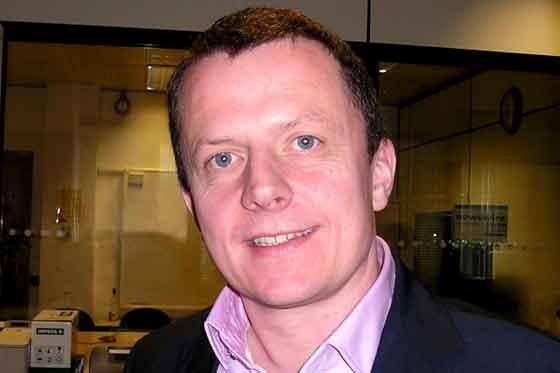
Has it become more difficult to get access to senior figures in politics and business in recent years?
It hasn’t. It’s been a common assumption for years that the pulling power of Today was bound to wane as choice and competition increased, but there’s absolutely no sign of that happening as a general trend. Some senior politicians and some chief executives are reluctant to talk to us, but that’s always been the case. And if you set those individuals aside, what’s really striking is that the programme remains as capable of drawing the big names as it was 10 or 15 years ago. In the case of business, I’d go further and say that we actually get bigger names, and more of them.
Is the presenting style on Today – the kind of tough belligerence typified by John Humphrys – still effective in an age of political spin? Or is it morenecessary than ever?
I’m aware of the risk of inviting public ridicule when I say this, but the house style of Today isn’t confrontational. Very few of the interviews we do fall into that category. They might be the ones that stick in the memory, they might cause some minor controversy, but in percentage terms, aggressive interviews are a small part of the programme – and that has to be the right approach. Whether we’re dealing with politicians or anyone else, the important thing is that we use the technique that seems to us to stand the best chance of getting something out of the conversation. Sometimes that will be tough and confrontational; mostly it won’t. If we relied solely on any single approach, we’d fail.
Does Today try to set the news agenda or is it more about following the news leads from elsewhere?
You’ve offered me a false choice: we do both – and we’re not alone in that. In the end, whether or not we set the news agenda is for others to decide. If we do our job well, and break stories that live on beyond the programme, that’s testament to the quality of our journalism. If our only aim was to set the news agenda, it would be a fairly stupid ambition.
How has the Hutton report changed the way Today conducts its journalism?
I think Hutton reinforced more than it fundamentally changed. The programme went through the fire and some of its values and processes probably came out with a harder edge, but our journalism was always based on core BBC values – objectivity, impartiality, accuracy, and so on – and it still is.
Has it become less scoop-driven since Hutton?
No.
How much of the programme is sourced from its own original journalism? And how important is this?
Impossible to put a figure on this, but you’d need to look at original journalism in the round. It doesn’t come only from our reporters, although they’re important. A lot of the rather less-heralded originality on the programme pops out of the heads of producers who, day in and day out, come up with ideas and treatments that make the programme what it is. If you include them in the tally, the proportion of original journalism is very high indeed.
John Humphrys has become the current longest-running presenter. If and when he were to leave, how would Today go about filling the gap, especially when he and his style of presenting have become so associated with the programme for its listeners?
Despite John’s close association with God, in the end it’s more a question of when, rather than if, he leaves. And when the dreaded moment arrives – what can I say? – our plan will be to face it with fortitude and, in our cunning and sophisticated way, to find not just any old presenter, but a fairly good one to take his place. I hope this doesn’t give away too much of our thinking.
How do you see Today’s strategy for the future in the light of possible direct competition from Channel 4 Radio and indirectly from other news platforms/sources?
The job in hand is to define what a modern Today programme sounds like – to find a tone of voice and a news agenda that are authentically Today but absolutely contemporary at the same time. That’s really what the last few years have been about – and it’s work that will have to continue regardless of whatever fresh competition or new platforms we face.
Email pged@pressgazette.co.uk to point out mistakes, provide story tips or send in a letter for publication on our "Letters Page" blog




